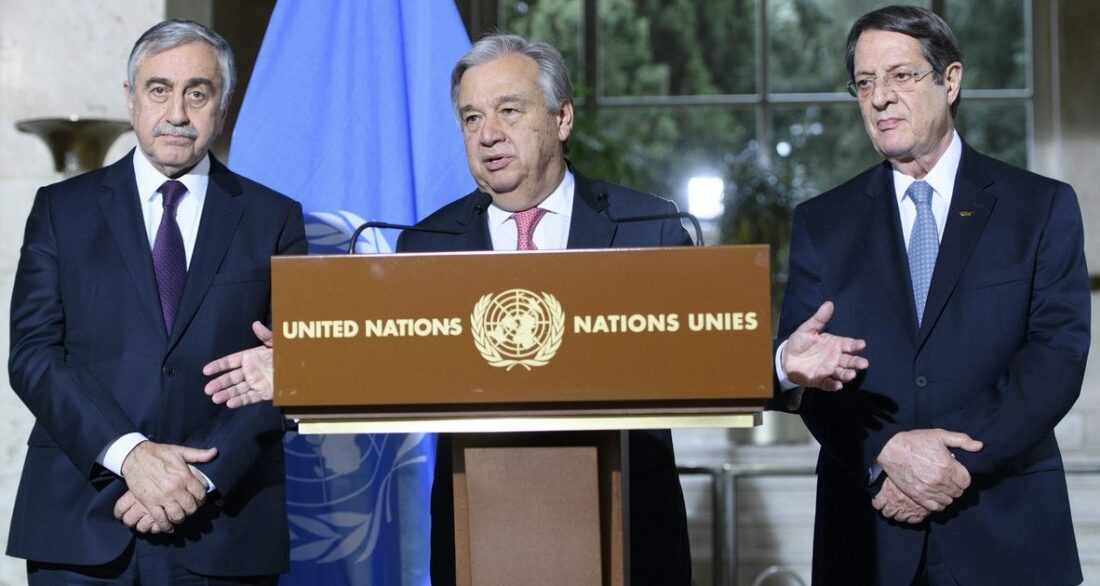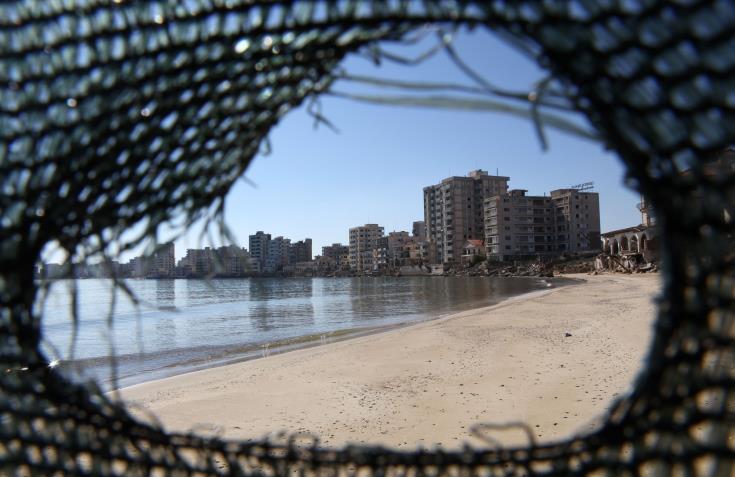
AKEL on the UN Secretary-General’s Report
Statement by the General Secretary of the C.C. of AKEL A. Kyprianou
AKEL C.C. Press Office, 10th October 2017, Nicosia
The Report of the UN Secretary-General, which has been officially released, clashes with President Anastasiades’ narrative as to what actually took place in Crans Montana. The President of the Republic said that the reason for the failure in Switzerland was due to Turkey’s insistence on guarantees, rights of intervention, the staying of troops, even on a military base.
As President Anastasiades himself admits in Crans Montana the UN Secretary-General, the EU, Britain and of course Greece and the Republic of Cyprus had the clear and categorical position that the Treaty of Guarantee and the rights of intervention would be abolished from the first day of the solution of the Cyprus problem. Therefore, if the President’s narrative was valid, the least that the UN Secretary-General would have done in his report would have been to demonstrate through the description of the facts that the reason for the failure was the Turkish stand on the specific issues. Not only did he not do so, but on the contrary he states through his close engagement with the three guarantor powers in Crans Montana that “I could see from my in-depth engagement with the three guarantors in Crans-Montana that they had all come to Switzerland committed to seeking mutually acceptable solutions.” He goes on to point out that, in his confidential bilateral meetings, “key positions and indications of possible openings were put forward by relevant parties, particularly on the issues related to security and guarantees. “.
This is precisely the reason why he went to the working dinner with the assessment that there was a broad consensus for a strategic agreement. There, he proceeded to submit the informal document on the mechanism for implementing the solution, which dispelled any concerns about a replacement of the guarantees by another system.
On the basis of the above, the UN Secretary-General concludes that on the issue of security – guarantees the progress recorded represents an historic step. Here too, he maintains his overall assessment that in Crans Montana a historic opportunity for the solution of the Cyprus problem was missed, all the more in his view that the basic parameters of the solution were essentially solved.
It is therefore evident that all that the UN Secretary-General records and concludes contradict with Anastasiades’ narrative as to all that happened in Crans Montana. And it is worth reflecting as to why the President has not reacted to the Report’s content.
The UN Secretary-General doesn’t confine himself to conclusions, but also records what he expects from both sides in order for the negotiations to resume with a “meaningful process”. He states that he is ready to help “should the sides jointly decide to engage in such a process with the necessary political will, in order to conclude the strategic agreement that was emerging in Crans-Montana” and “encourage them to seek ways to preserve the body of work that had been built throughout the process in the form of convergences and understandings accumulated in the course of the past two years” through the “package approach on specific key issues”.
Unfortunately, as it appears from the recent meeting in New York, neither of the two sides were ready to proceed as the UN Secretary-General proposes. Under these circumstances, no new initiative whatsoever can be expected.
It is a historically proven fact that in periods of a non-existence of a negotiation procedure on the Cyprus problem, without any responsibilities being apportioned on the Turkish side, we had the most serious and dangerous fait accompli. This is precisely what is being attempted right now with the customs issue, the issue of the Maronites, Famagusta, the attempt to upgrade the so-called Property Committee and the reputed mass “naturalization” of settlers in the occupied areas. The most effective way to tackle these negative developments is the resumption of a meaningful and comprehensive negotiation in the way which the UN Secretary-General proposes.
In the aftermath of the deadlock of an effort that, as the UN Secretary-General himself states dates back to 2008, the question which citizens are called to answer is whether Mr. Anastasiades can and wants to negotiate the solution of the Cyprus problem with steadfastness, consistency and commitment to principles and within the agreed framework.




